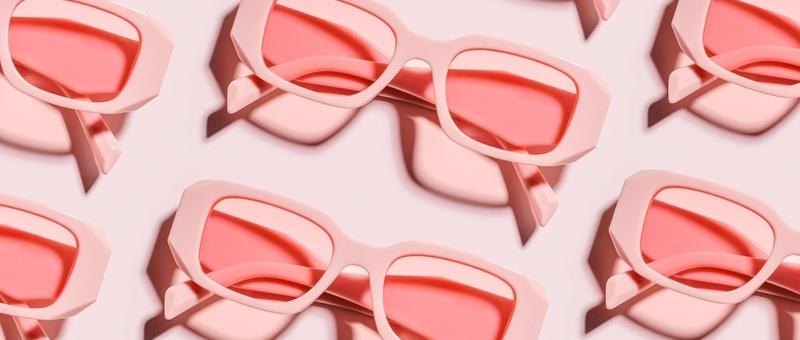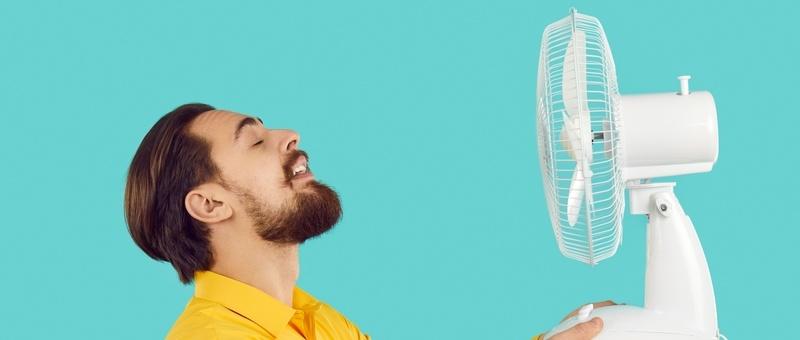
How to cope in the outdoors with a heatwave
Peer reviewed by Dr Colin Tidy, MRCGPLast updated by Lawrence HigginsLast updated 1 Jul 2025
Meets Patient’s editorial guidelines
- DownloadDownload
- Share
- Language
- Discussion
As soon as the temperatures soar, it becomes the main topic of conversation. But, despite all the moaning and groaning about not being able to sleep, it can be nice to get out into the sun - as long as you do so safely. We've got all the tips to stay safe outdoors during a heatwave.
In this article:
Video picks for Summer health
What temperature is considered a heatwave?
The Met Office defines a heatwave as "an extended period of hot weather relative to the expected conditions of the area at that time of year, which may be accompanied by high humidity". In other words, it's hotter for a longer period of time than you would expect, for where you are.
The World Meteorological Organisation states that a heatwave is when the daily maximum temperature is higher than the average maximum temperature by 5°C for five or more consecutive days. Thresholds for UK heatwaves vary by county.
Why it's important to stay cool during a heatwave
Back to contentsDr Ross Perry, GP and medical director of Cosmedics, says that staying cool and taking precautions during a heatwave are important, as experiencing heat exhaustion for an extended period of time can lead to heatstroke. The symptoms of heat exhaustion include:
Feeling sick.
Dizziness.
Feeling faint.
Confusion.
Cramps.
Feeling thirsty.
Heatstroke is when your body temperature is greater than 40C.
Those at greater risk of heatstroke are babies and those over the age of 65 as body temperature is more difficult to regulate at these ages. You should also be checking any medicines that you are taking that may affect your hydration levels.
If you think you might have a heat-related exhaustion or heatstroke, speak with your doctor immediately or, in the UK, call 111. If you feel very unwell with fast breathing, having fits or losing consciousness, you must call 999.
Dr Perry adds that swollen fingers, toes, hands, and feet are common following exposure to heat, as it causes swelling (heat oedema). This swelling tends to be no cause for alarm, but you can ease symptoms by taking breaks from the sun and drinking plenty of water.
Continue reading below
How to keep cool outdoors in a heatwave
Back to contentsSeek out the shade
Since sunny days are few and far between, it can be tempting to bask in those golden rays all day long when they do make an appearance. However, it's all about balance. Spending time in the shade offers a multitude of benefits, as well as reducing your risk of heatstroke:
Prevents skin from dehydrating.
Prevents hair from becoming burnt, brittle, and faded in colour.
Prevents dry eyes worsening due to the glare of the sun.
Prevents chapped lips.
Reduces risk of skin cancer, brown spots, and visible red veins.
Reduces risk of heat rash.
Remember to wear sunscreen
No one is too cool for sun cream - it is essential in protecting your skin from the sun's harmful UV rays, even on cloudy days. It is recommended that you wear an SPF (sun protection factor) of 30 or above while keeping an eye out for any changes in your skin throughout the day. Ideally, children and those with highest risk of skin cancer should be using SPF of 50 or more. Not only does sunscreen reduce your risk of skin cancer, it also prevents early signs of ageing, reduces inflammation, prevents skin discolouration, and, of course, reduces risk of sunburn.
It's recommended that you reapply roughly every two hours, depending on the specific sun cream and SPF you're wearing, and use a water-resistant product.
Don't overdo the exercise
A light jog on a sunny day might sound idyllic, but don't go overboard because exercising while it's hot puts extra stress on your body. The combination of exercise and the humidity can increase your core body temperature, with you having more blood in circulation as an attempt to cool down. If you are going to be exercising and sweating in the heat, sunscreen is even more vital.
And remember to reapply frequently - every 40 minutes - if you are sweating, swimming, or drying off.
Stay hydrated
Remember to keep refilling your water bottle too, since your body loses fluids by sweating as well as breathing faster when you feel hot.
You should be drinking at least eight glasses of water over a normal day. This should be more when its hotter. Don't wait until you feel thirsty to grab a drink - keep filling up your glass at regular intervals. If you're out and about, take a water bottle with you - you can buy insulated bottles that will keep your drinks cold. On hot days, you should steer clear of caffeine and try to reduce alcohol consumption, as these can dehydrate you more.
What to wear in a heatwave
Back to contentsItems you should have in your summer wardrobe to protect against heat include:
Light-coloured loose clothing to protect against permanent skin damage.
A wide-brimmed sun hat - at least 7.5 cm - to cover your face, head, and neck.
Sunglasses - to protect your eyes from the harmful effects of UV rays.
Continue reading below
How to ease sunburn
Back to contentsIf you do end up getting sunburnt, there are ways of easing it.
"What sunburnt skin needs more than anything is intensive moisture; therefore, any intense moisturiser will do the job. A moisturising after-sun containing aloe vera is a good choice, as it combines the soothing benefits of aloe vera with hydration. Above all, the key is to apply liberally and frequently, every hour or so, if necessary," explains Dr Perry.
Top tip: keep your moisturiser in the fridge and it will instantly cool hot and itchy skin when applied.
There is also anecdotal evidence supporting the use of natural aloe vera as a traditional herbal remedy for sunburn symptoms, with some people crediting its cooling and soothing feeling. However, there is no scientific evidence for this.
Other tips for easing sunburn include using a cold compress to relieve inflammation - which you can use every hour throughout the day.
So, whatever you get up to this summer, be safe and have fun!
Our top tips for staying well outdoors during a heatwave
Keep an eye on vulnerable neighbours and set up a call if you live alone or know someone who lives alone to check in on them.
Close curtains indoors to keep rooms cooler.
Seek shade and avoid the sun at its hottest between 11 am and 3 pm.
Wear sun cream and cover up in loose clothing, hats and sunglasses.
Drink plenty of fluids, avoiding alcohol.
Never leave anyone - especially children and animals - in parked cars.
Keep an eye on the weather.
Ensure you have plenty of fluids when travelling and take regular breaks.
Patient picks for Summer health

General health and lifestyle
How to cope in the outdoors with a heatwave
As soon as the temperatures soar, it becomes the main topic of conversation. But, despite all the moaning and groaning about not being able to sleep, it can be nice to get out into the sun - as long as you do so safely. We've got all the tips to stay safe outdoors during a heatwave.
by Lawrence Higgins

General health and lifestyle
How to stay cool indoors this summer
The UK is not exactly renowned for its blazing hot summers, so most of us welcome with open arms a rise in mercury levels. Others find warmer weather uncomfortable and, for some people, the heat can even pose a health hazard.
by Victoria Raw
Continue reading below
Article history
The information on this page is peer reviewed by qualified clinicians.
Next review due: 2 Jul 2028
1 Jul 2025 | Latest version
18 Jun 2022 | Originally published
Authored by:
Emily Jane Bashforth

Ask, share, connect.
Browse discussions, ask questions, and share experiences across hundreds of health topics.

Feeling unwell?
Assess your symptoms online for free
Sign up to the Patient newsletter
Your weekly dose of clear, trustworthy health advice - written to help you feel informed, confident and in control.
By subscribing you accept our Privacy Policy. You can unsubscribe at any time. We never sell your data.